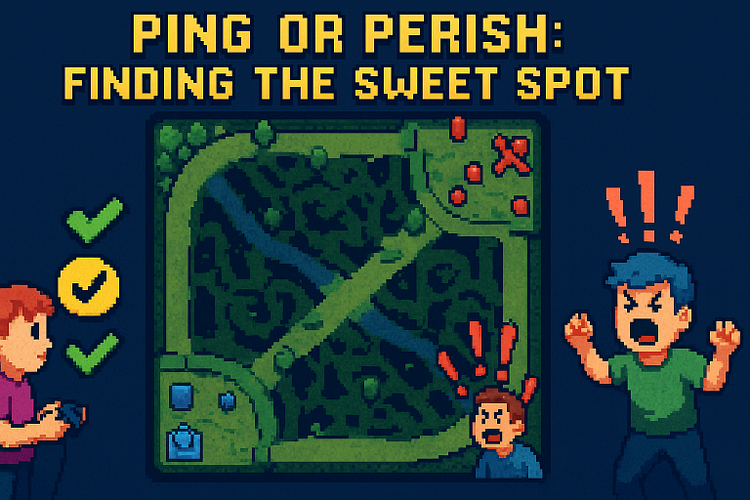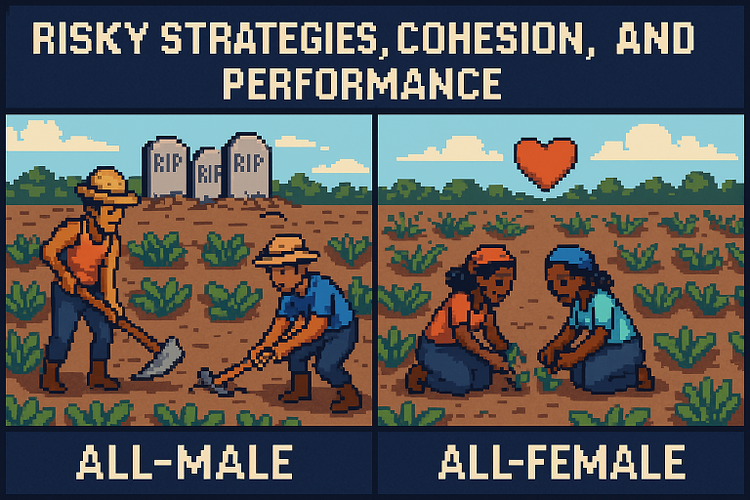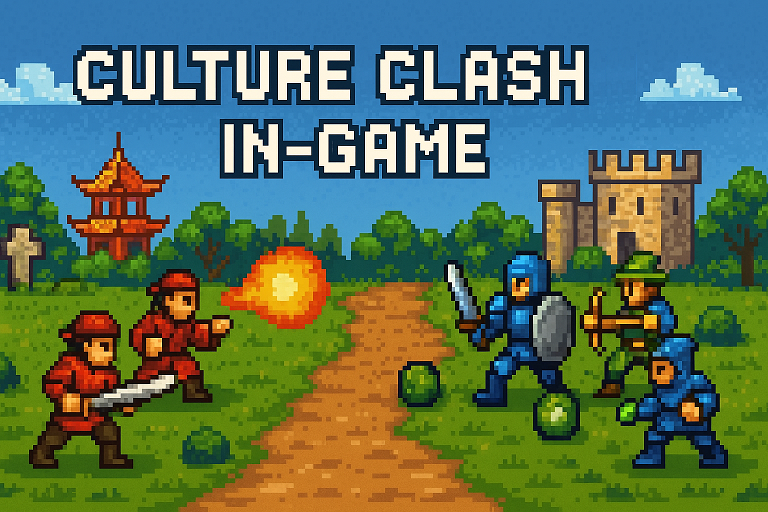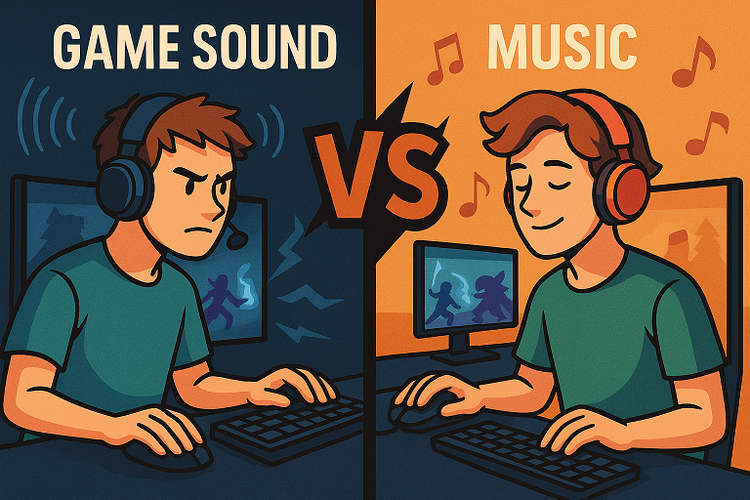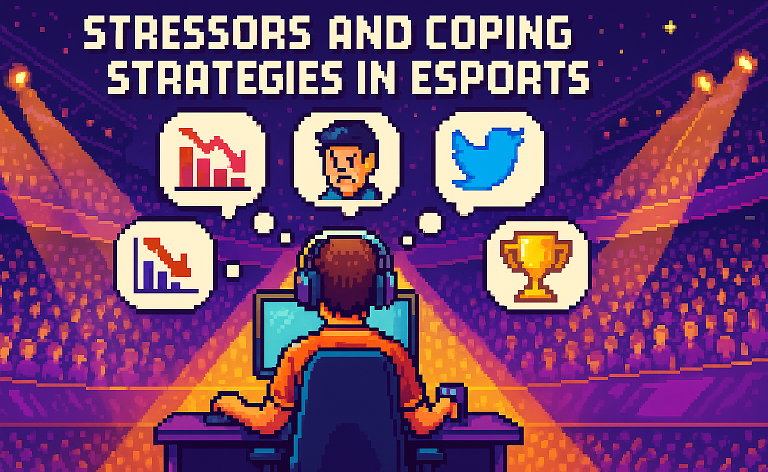Don't go Pro in StarCraft II
We discuss the RTS video game StarCraft II, prize money, career, and environment for professional esports players.
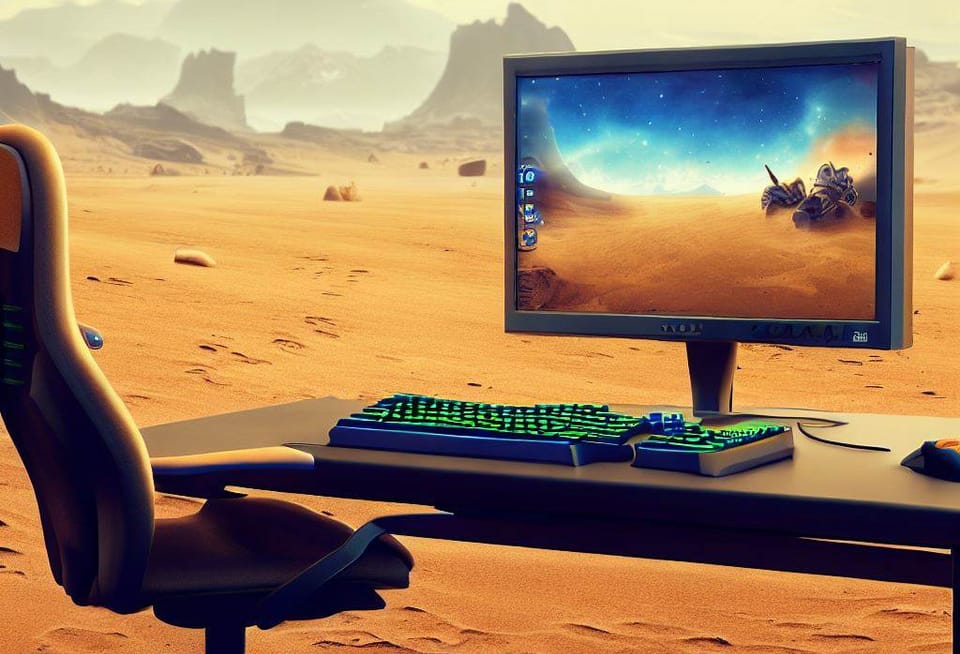
Hello guys,
I spent more time on StarCraft II data this week, exploring age and regional differences, as well as the evolution of tournament prize money over the past 13 years. What I found sheds more light on the current state of StarCraft II in terms of being a career path and environment for all current progamers.
I spent more time on StarCraft II data this week, exploring age and regional differences, as well as the evolution of tournament prize money over the past 13 years. What I found sheds more light on the current state of StarCraft II in terms of being a career path and environment for all current progamers.
️️👴 Age is just a Number, right?
We know from studies that hand-eye coordination suffers in people’s mid to late 20s, meaning that playing competitively on the highest level gets harder. When plotting the age trend in StarCraft II and comparing it with the data from all Esports titles and players, this is what we get:
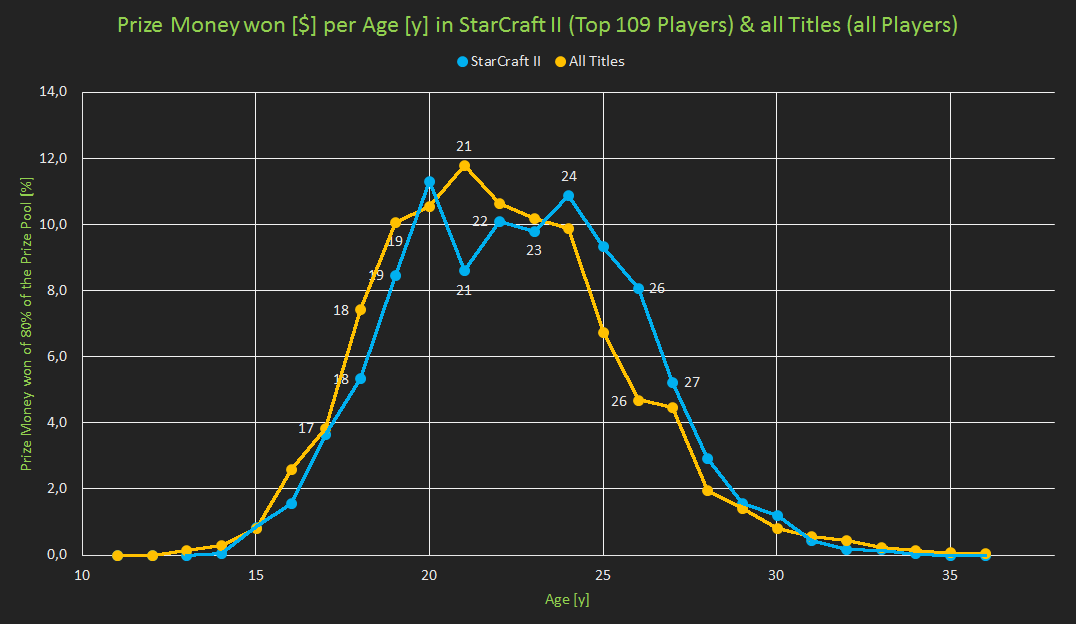
Interestingly, we see three important facts in the data. First, SC2 players start making money later than the average Esports player. Second, there is a huge drop at age 21 (more on this later), and third, SC2 progamers make more money than the average Esports player at ages 24 to 30.
The questions that arose for me then were: what causes the drop at age 21, and why do SC2 progamers make more money later on?
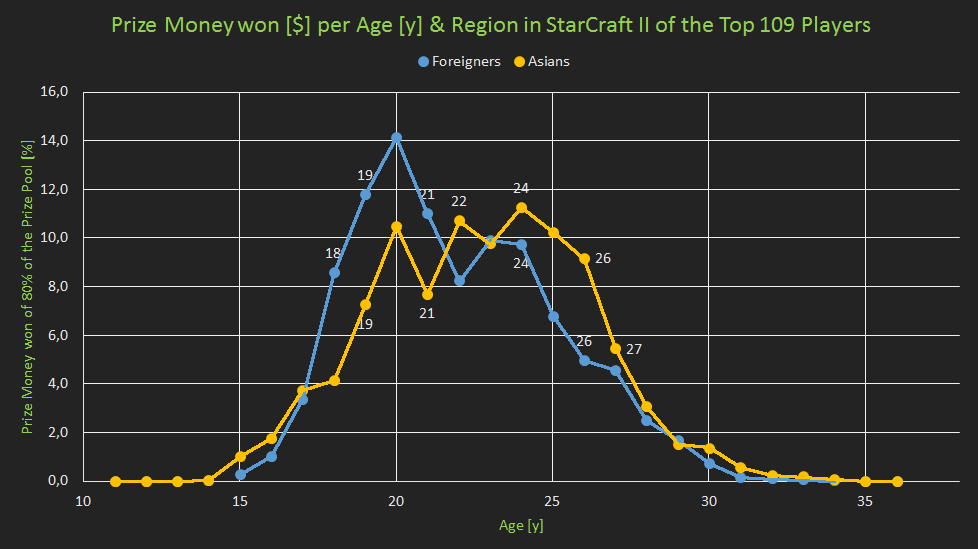
As you can see in the picture below, there is a big difference when comparing the two regions. Foreigners are “better” way earlier in their career, whereas Asians bloom later. Interestingly, the steep fall at age 21 occurs in both regions, and even more so for foreigners. That is quite counterintuitive since one explanation may be the mandatory military service for Koreans.
One argument might be that foreign players reorient themselves after age 20. This means quitting playing SC2 professionally and going to college or finding a regular job instead.
Asian players on the other hand may be more inclined to pursue a career as a SC2 pro. After finishing their military service, a higher proportion may return to playing professionally. That may cause a continuous upward trend, leading to higher income in their mid to late 20s.
According to the data, foreign players may also quit being a progamer quicker than Asians. One can only speculate what the reason for this may be. In such a case, interviewing players from both regions would be an appropriate approach.
⚠️ High Risk of going Pro
Referring to the second question (Why do SC2 progamers make more money later on?), I argue that the SC2 ecosystem is in a state where there are very few new players starting to compete, and older players stay. The reason is twofold.
One, StarCraft II isn’t super popular anymore. There aren’t really any new players picking up the game, and even fewer playing competitively. Second, the incentive to go pro is low and holds a high risk in itself.
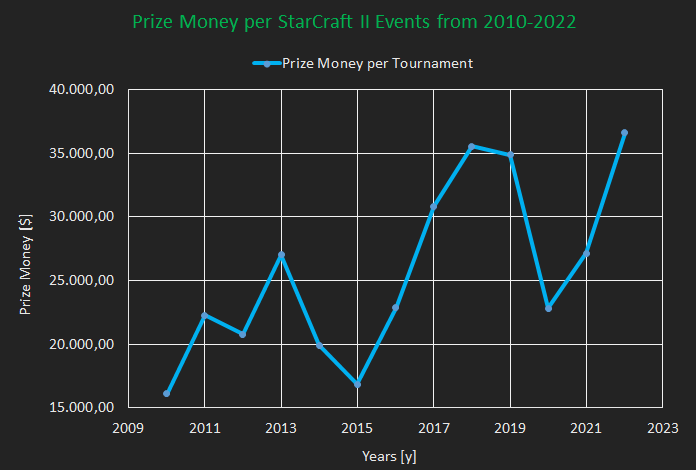
The graph above shows the prize money per tournament over the last 13 years and is adjusted for inflation. At first sight, this looks good, right? There is more money to be made per tournament. This should be an incentive for players to go pro. But a closer examination shows why it isn’t.
More money per tournament means either of two things: there is a rising prize pool in general, or fewer tournaments. And, not very surprisingly, the latter is the case. This causes a problem for new and also established players.
💡 In the current state of StarCraft II, we see fewer tournaments and also lower tournament prize pools. Hence, going pro is a high-risk career choice because one would have to be extraordinary (and fight their way up in the first place) to make a (good) living. The average player can barely scrape by. As a result, no new blood comes in, but at the same time, established players remain within the scene because they can make enough money and don’t see the necessity to choose a new career path.
This trend may also be the reason why, over the past five years, players such as Harstem, uThermal, and others have become YouTubers and entertainers. They might still compete, but they’re more like semi-professionals now than professionals.
That's it for today. See you next Sunday.
Christian 🙂
Join over 250+ (🤯) Gaming Science subscribers and become smarter every week.
"I love this type of content, thank you Chris."

